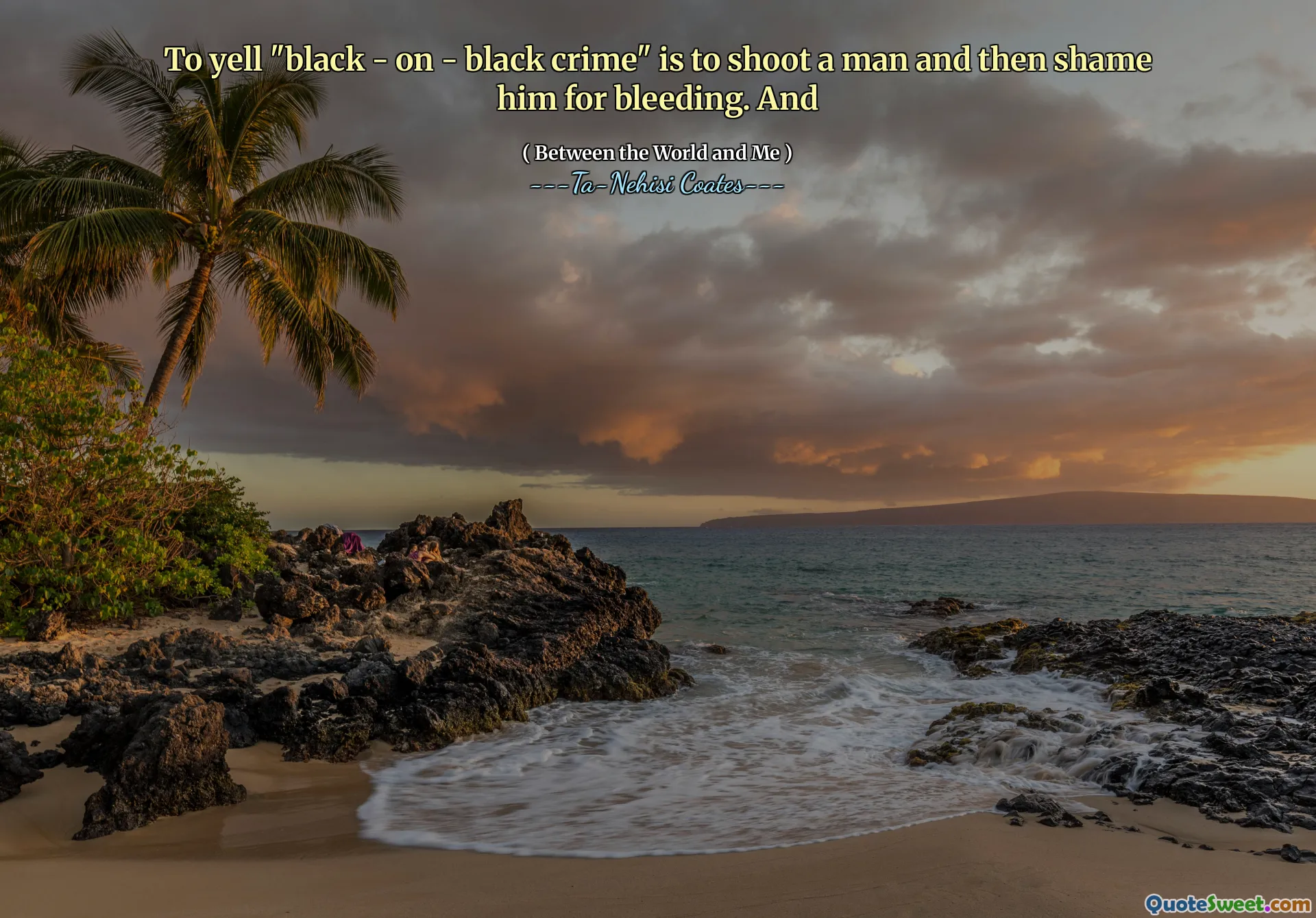
To yell "black - on - black crime" is to shoot a man and then shame him for bleeding. And
This quote poignantly captures the self-defeating and accusatory nature of the phrase "black-on-black crime," which is often used to stigmatize Black communities. The imagery of shooting a man and then blaming him for bleeding reveals the cruel irony and injustice embedded in this rhetoric. It implies that the victim suffers not only from the violence inflicted upon them but also from the societal condemnation that follows, as if their pain was a fault of their own. Ta-Nehisi Coates, through this analogy, underscores the deeper systemic issues — highlighting how Black individuals are frequently victimized and then further marginalized by the accusations and stereotypes levied against them.
This quote urges reflection on the broader context in which such a term is deployed. Instead of addressing root causes like institutional racism, poverty, or lack of access to resources, the phrase merely turns blame inward within the community, overlooking the external structural factors. It serves as a powerful critique of this victim-blaming discourse and challenges readers to rethink how society addresses crime and justice, encouraging a more empathetic and holistic approach. In "Between the World and Me," Coates delves into these themes with a profound sensitivity to history and identity, reminding us that the harm done goes beyond the physical violence to encompass the psychological and societal wounds inflicted by neglect and prejudice.





